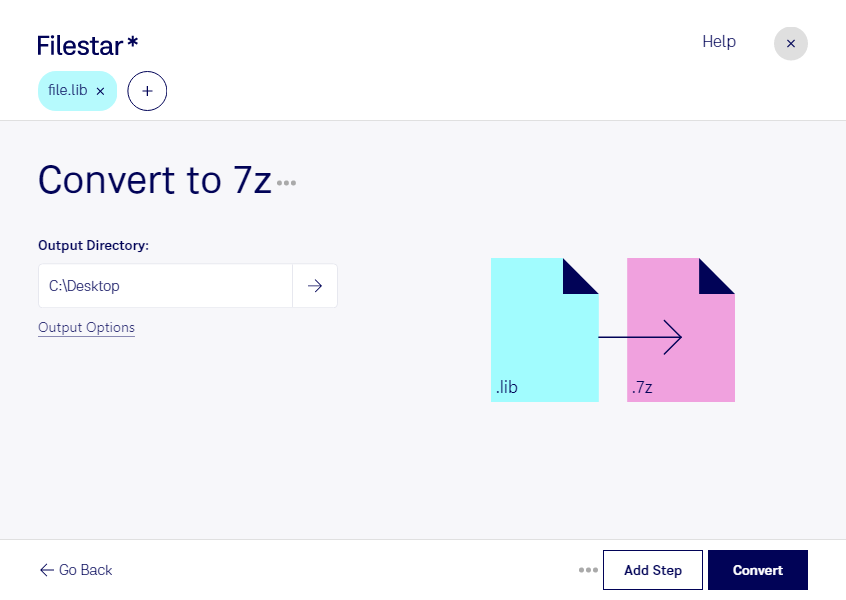What is the difference between .lib and .7z?
- Extension
- .lib
- .7z
- Format
- Binary
- Binary
- Category
- Developer
- Compressed
- Developer
- GNU
- Igor Pavlov
- Description
- A file with the .lib extension primarily represents a Generic Data Library, commonly used in various software development environments. The .lib file typically contains a collection of object code modules, symbols, and metadata that programs or compilers can reference or link to during the compilation or linking phase of software development. These libraries serve as repositories of reusable code, allowing developers to include standard functions, classes, or routines in their programs without having to rewrite common or complex functionalities from scratch.
- A 7Z file is a type of compressed archive that uses the open-source LZMA compression algorithm to reduce the size of the file. This type of file is often used to store multiple directories and files in a single, compressed package. 7Z files can also include strong AES-256 encryption for added security. They are commonly created using the 7-Zip utility developed by Igor Pavlov.
- MIME Type
- application/x-sharedlib
- application/x-7z-compressed
- Sample
- sample.7z
- Wikipedia
- .lib on Wikipedia
- .7z on Wikipedia
